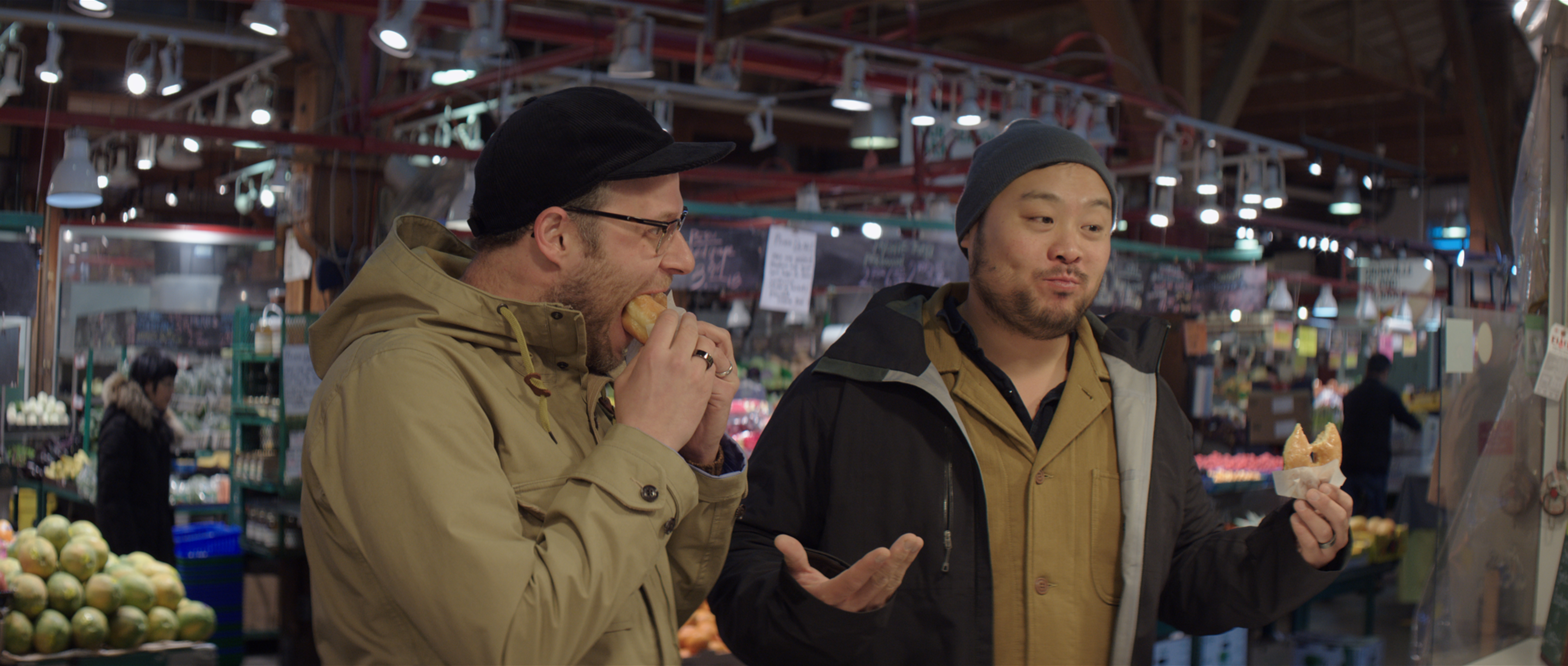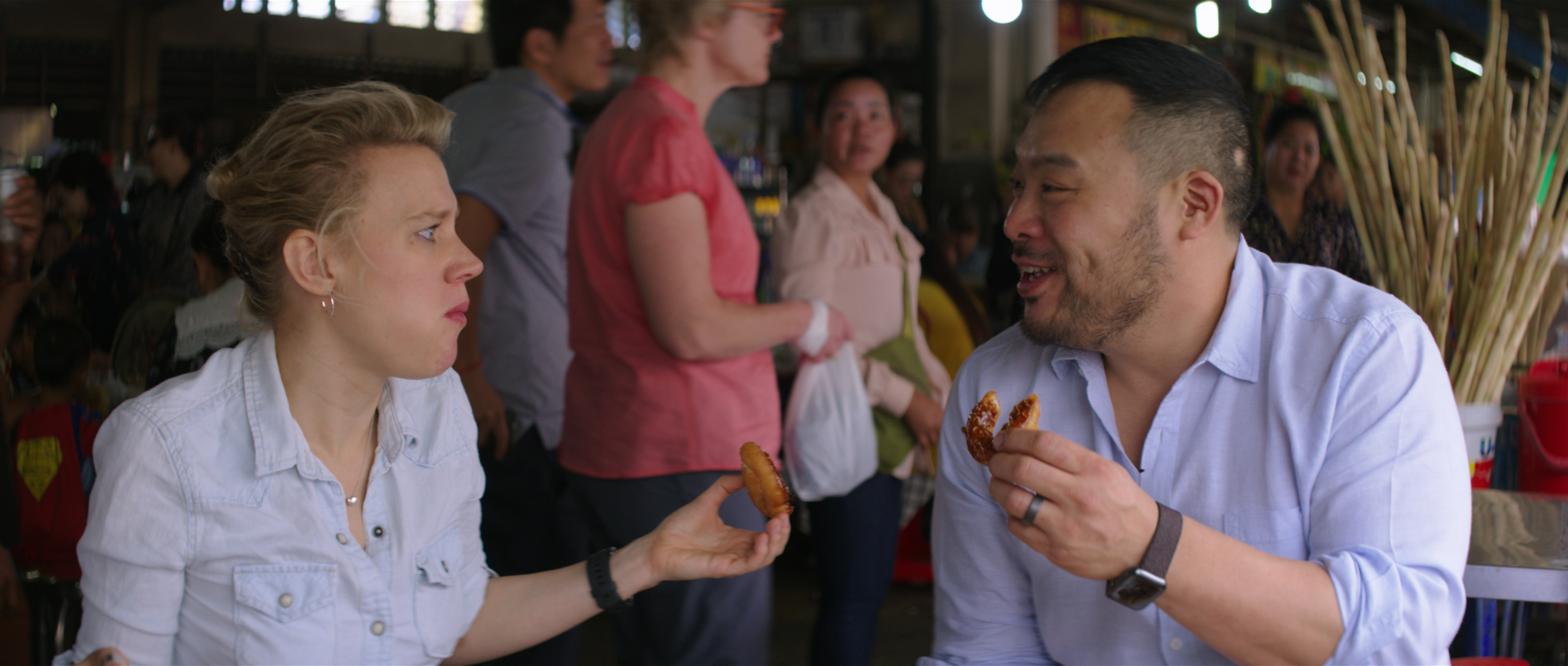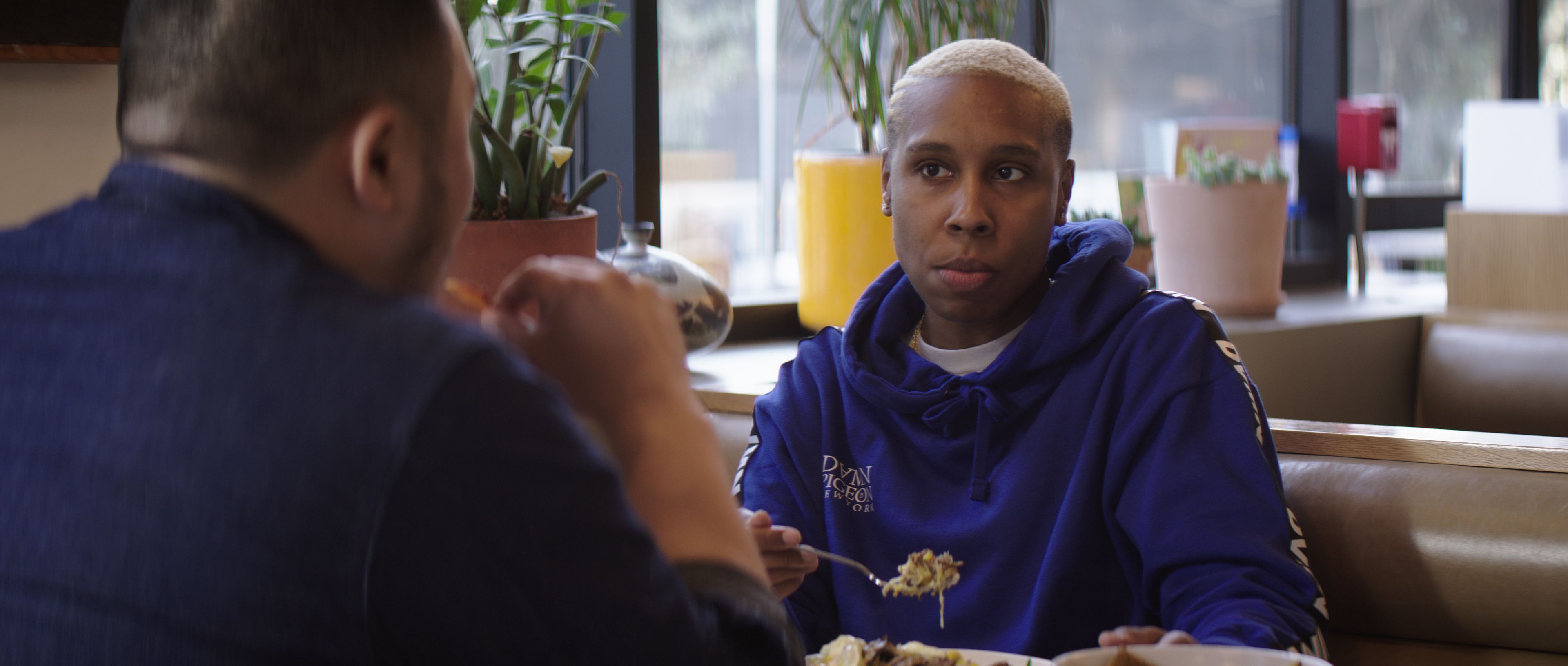When David Chang opened Momofuku Noodle Bar in 2004, he almost immediately took the culinary world by storm. Within a few short years, he was one of the most widely known, wildly hyped, and deeply beloved chefs in America. More restaurants followed. In 2007, he was the James Beard Rising Star Chef of the Year. In 2009, he scored his second Michelin star. In 2011, he launched the much-lauded renegade food magazine, Lucky Peach — an outlet which helped make food conversation fun again.
With his stratospheric level of rekown, it was only a matter of time before Chang ended up on TV. After doing the fod competition judging rounds for a few years, he hosted the first season of the PBS-produced, Anthony Bourdain-created Mind of a Chef. In 2018, he hosted Ugly, Delicious on Netflix — delving deep into the food system. Last week, Chang returned to Netflix with Breakfast, Lunch & Dinner. The show takes a more typical form of travel TV — “man goes to place, eats some stuff, sees some places, draws a few conclusions” — with one cool wrinkle: Chang is all too willing to cede hosting duties to his guests. It’s an interesting wrinkle on an interesting show, one in which one of the best chefs alive explores the world with wide-eyes and an eager palate.
I spoke with Chang this week about the show, the loss of Anthony Bourdain, and the importance of travel in shaping our modern world.
One of the things I love about what you do with your different shows is that they’re still kind of this fast and loose — a little bit shaggy. It’s an “I’m figuring this thing out as I go” energy that I like. Is that intentional? Is that something that you do because you kind of are a post-modernist who wants to break the conventions or what’s your thought on that?
Well, yeah, I can definitely see that. I don’t know if I’ve ever thought about it other than what you see as me trying to figure it out, that’s literally my daily existence. That’s just who I am as a person. And if that comes across that way it’s because I think that if I can summarize it, I think that’s what people would say if they work with me or know me really well is I’m constantly figuring something out.
Something I really like about the show is that there’s that energy of, “What are we going to do today?” kind of approach to eating and in Seth’s case, smoking weed. Or in Chrissy’s case, touring Marrakesh. Did you know from the outset that you wanted to let the guests lead the way? How much did you guys use fixers? To what degree did you kind of make sure that there was something happening vs. just meandering?
Well, the planning part was… how should I say? It was both easy and difficult.
Number one, right? Trying to find the right balance of things that we need to discover. And that was definitely the case for Cambodia, for instance. We’re sort of on a time crunch. How do we do all the things that we want to do within a certain amount of time? And that’s not easy. But also we sort of have to figure out what stories and what foods and which kinds of conversations are going to work. So that was hard, right? Just because you can go somewhere doesn’t mean you should. Maybe it’s already been covered or maybe it’s not something that we want to do.
Sure. There are places that have been “travel show”-ed to death.
And maybe there’s another way to talk about those places. Because, for instance, going back to Cambodia I feel like a lot of people would expect a visit to the Killing Fields. That’s sort of expected when you make a show there. And of course that’s important to cover. But maybe there’s another way to talk about the atrocities of the genocide?
I don’t know if we were successful, but that’s at least one of the goals was, “How do we do something but do it in a different light?”
That was one part of it. The other part was, “How do we go to places that… for instance, Vancouver, this is a town that Seth is extraordinarily proud of — so how do we share that?” It becomes almost him editing what he wants to represent. So I think what was really difficult for me was going into these things is like, “I’m not a natural at this.” It was very difficult for me to figure out what kind of rhythm each guest wanted. Because it’s not a show that’s the same thing over and over again and I had to find a rhythm with the other person.
That was made easier because they’re fantastic people. But I was nervous.
The show leans heavier into the use of guests than Bourdain did. And so you’re very much at the whim of the guests, which I think is interesting. I mean what you’re pitching is, “Hey, here are some really interesting people in cities they love!” essentially.
Right. Or cities they want to discover something about. If Ugly Delicious was using food almost as a Trojan horse to start talking about other things in culture. We’re using food and travel in the same way — to talk about other things about the world or the guests.
That was part of the show from the beginning. Maybe there are different layers that we haven’t looked at yet and, because this whole travel series is part of a genre that has been so well done, we really wanted to see if there were other ways to do it. And maybe that isn’t from my perspective per se, but from the guest’s perspective.
I’ve spent my whole career sharing places with people as a travel writer, but also balancing that with fear of over-tourism. You expressed some of that in the Seth episode. You’ve seen what happens when we blow up certain places. Is that something that you were wrestling with as you produced the series?
Yeah, that’s something that Seth and I spoke about and I’ve always had reservations about shining the light on places that I love a lot, because — even if they’re struggling and they need more business — I just always wanted to ask them “was it okay?” Are they aware that if we do this, things will change?
That said, almost every person… if you tell a business owner, “Hey, you’re going to be busier.” Now, I don’t know anyone that — outside of maybe a few restaurants in Japan — but for the most part, most restaurants are going to be like, “Yes, we welcome the traffic. That would be wonderful.”

I feel like the work that you’ve done is such a big part of the American palate evolving and expanding into flavors that had maybe been marginalized. Is that something that you associate with: helping this explosion of young people who are able to talk about food and also open to foods that they weren’t raised with?
I don’t know if I thought about it so specifically, other than it’s just what I sort of had to grow up with and then obviously using professional cooking as a way to express myself and finding out that, “Oh my God, there are so many stories that haven’t been told or maybe ‘culinary truths’ that are wrong.” Maybe the way I was trained to cook something was misinformed because someone else taught it incorrectly.
That was the genesis for me. I would think, “Hey, if I discovered that certain things, particularly in the food world, are actually wrong, then what other stories are?” I’m not the first person to do that. Obviously so many of these conversations about travel and food revolve around Tony [Bourdain]. He wasn’t the first one either, but he was the first one that obviously made it incredibly popular. For instance, he was an advocate of Latin American workers in restaurants in general — these voices that should hit mainstream culture but don’t. And if we can use that in any way to sort of raise awareness, great. But do it in a way that’s not prescriptive.
He allowed people to open the door and walk through it.
Right.
With you being close to him, what lessons did you pull from him in preparation to do a full-on travel show?
I just think it wasn’t even TV show related lessons. It’s just: “Be a good person,” right?
Yeah, he definitely embodied that.
That seems simple enough, but it’s always more difficult in practice. He was also all about constantly growing and seeing different perspectives and understanding that your world is not the only world that matters. And that wasn’t just for me, as his friend, it was obviously the same message for the world over — which is why I think he impacted so many people.
Tony as a person, as an individual — that was no different than Tony who you saw on TV or in his books. It’s the same man: There’s a sense of discovery, a sense of knowing thyself, and a sense of getting better. I don’t know if I think about or the people that make the show think about it, per se, but it certainly that year of filming weighed heavy on me for sure. Because the last thing I ever wanted to do was to… it was just heavy. Going to Cambodia was really hard because that’s something that I would imagine Tony doing.
We tried really hard to make sure that the show was different. It was respectful but intentionally different from Tony’s shows and I think it’s hard for me to articulate this because I don’t know if it can ever come across clearly enough, but we only wanted to do it differently and, by doing it differently, that was our way of paying respect.
Finding your own way to tell the story in a sense becomes a way to honor your friend and the way that he did things.
Yes.

When you see the modern travel movement and the modern food movement, do you feel like some of these issues are more democratized than ever? That people are more thoughtful about them than ever? We’re dealing with some really heavy nationalistic issues in the United States. Some really heavy immigration issues in the United States. When you’re out on the road and you’re seeing people try new things does it give you some degree of hope?
Hope, yes. But not in the way you might be thinking. I think it’s hope in a more realistic way that if people go out and they see the world, they’re going to see that people have problems and struggles that are the same things that everyone experiences.
When you understand that you are not the most important person in the world or your city or your culture or whatever — that’s how travel allows you to have a deeper well of empathy to understand how someone else might go through something and allows you to genuinely put yourself in those shoes. And I don’t know how that doesn’t make you a better person. Maybe not immediately, but I think it gives you the perspective that you didn’t have before. And I think that’s happening when people travel. I hope.
But the downside of that is people are only doing the same kinds of travel.
Right.
And that’s a paradox that I don’t know if I have an answer for. Because, you know, if I go to Japan for instance, I see all the same spots being hit by all the same tourists. I don’t know if that’s a good thing. There’s something about getting lost and discovering your own sort of narrative wherever you’re traveling. And that’s one of the best parts about travel. The unknown.
There’s also a lot of localism going on in certain parts of the country right now. And there are these conversations about over-tourism… how are you wrestling with all that?
I think it’s almost like, I think about it like in food, we need to really celebrate why we travel. And it’s got to be right. For instance, if I go to think about Cambodia — if this answers your question, let me know after the fact.
A lot of my close friends have gone to Cambodia, my wife has gone to Cambodia, but as a whole, and I’m sure you would agree most people are like, “Oh Thailand and Vietnam. Do you want to go to Cambodia?” “No…” Or like, “Oh yeah, I went there, but it’s sort of like a bummer.”
And they were on holiday. They want to have a good time. But maybe the travel that needs to happen is not the touristy places, but seeing the different side of destinations. And that’s one of the things I love most about Kate. Kate was like, “I want to know about the dance and that tradition.” And I was overjoyed because that summarizes Kate. It should to everyone. She is open to new stories and most importantly I think the travel should be about paying respect and taking the right things, not stealing, and if there needs to be a cap on things, fine.
That’s a really difficult question. I just feel like if the world continues to be explored and there’s nothing left to do and everything becomes a tourist trap, I think that’s… it’s more of a computer simulation, maybe not a real thing. I think that more and more people are following the same path and maybe it could be something local, but I think at the end of the day, wherever you are there’s something to see.
I remember I used to tell my cooks when they talked about going to China, Japan, or Asia, I’d be like, “Well first, travel to Chinatown! Literally get an Aibnb and just stay there. There’s so much to see! Learn about the food there for two weeks first.”
There is so much to see in this world, it’s hard to imagine that any one person is going to ‘run out.’
And you don’t have to go somewhere else.








